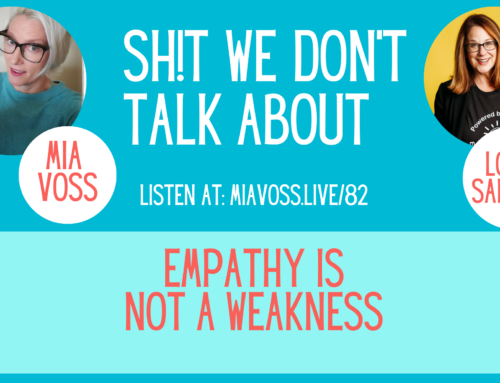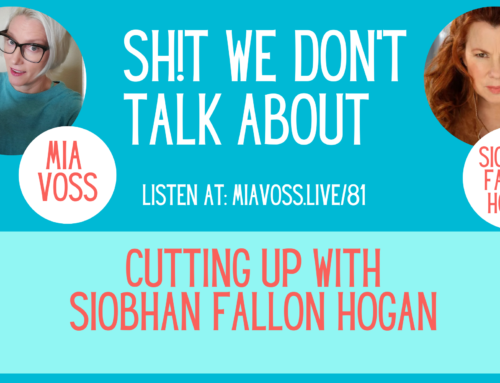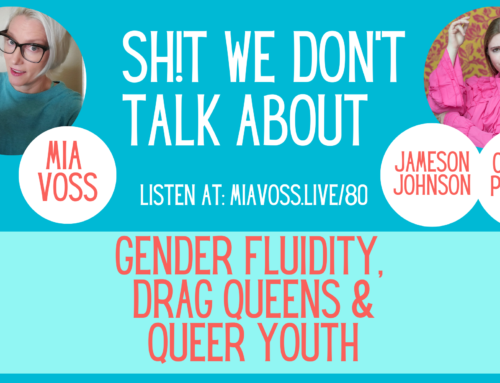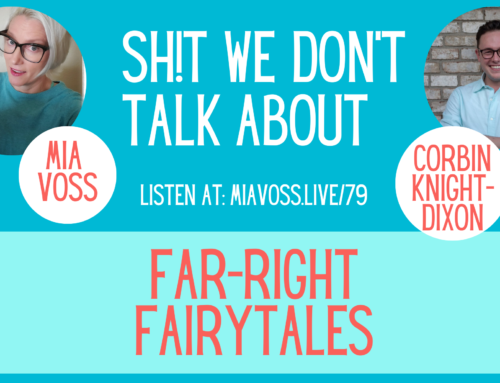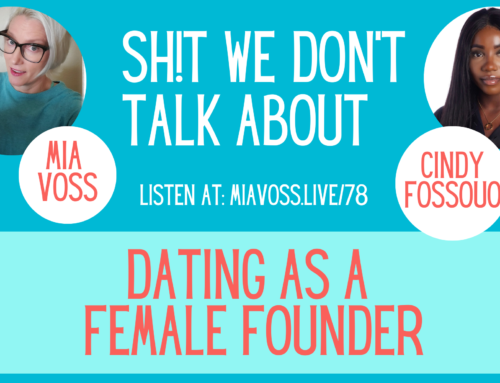Transcript – Episode 63 – Jenna Overbaugh
The Highlights
We’re getting much better at defining what Obsessive-Compulsive Disorder (OCD) and Generalized Anxiety Disorder (GAD) are. This is good! And we’re also getting better at educating people as to the proper use of the term “OCD” and why it should not be used to describe things like liking a neat house. OCD is not a personality trait. OCD is a serious anxiety disorder that can cause tremendous suffering so the term should not be used lightly.
Jenna makes the argument that there are not many functional differences between OCD and GAD even though both have specific criteria that mental health professionals use to diagnose each condition. As we make more real-world observations, we start to see the lines between some of these diagnoses get blurred. The COVID-19 pandemic really highlighted some of that blurring as people began to confront sources of anxiety and changes in behavior that aren’t necessarily clearly irrational or disordered.
In the early days of OCD, specific OCD subtypes were included in the diagnostic manuals. We all recognize the old standbys including contamination OCD, perfectionism and “just right” OCD, or moral (scrupulosity) OCD. But over time we’ve come to recognize many additional OCD subtypes including sexual orientation OCD wherein someone struggles to find total certainty and overcome fears and doubts and their sexual orientation.
The current social and political climate in the world makes subtypes like sexual orientation OCD even more difficult to handle since the “wrong” conclusion about one’s sexual orientation can mean that one may be demonized on a social or political level. In addition, pandemics, mass shootings, the rise of authoritarianism and autocratic leaders, and other real-life stressors have called into question the definition of what an “irrational” obsession might be. An obsession that would have been clearly categorized as irrational in a diagnosis 20 years ago might not seem so irrational or illogical now. This means that some of the differentiating factors that govern diagnosis are getting cloudy.
Traditionally, obsessions or fears based on real-world stressors would fall under the guide of GAD while more irrational, unlikely, or illogical obsessions would indicate OCD. But how much fear is irrational or illogical these days? Being afraid of catching a deadly disease might have seemed illogical in 2015 but nobody would question the validity of that fear in 2022.
In the end, it doesn’t really matter all that much if you are diagnosed with OCD or GAD. The approach to treatment remains the same in both cases. Exposure and response prevention – facing the things you fear slowly, incrementally, and in a measured way, is the treatment indicated for both OCD and GAD. It’s important to engage the services of a therapist or counselor that is specifically trained to understand and treat problems like OCD or GAD. Just talking to a therapist about how you feel is not a terribly effective treatment. Jenna’s feels strongly that specialization in mental health treatment should be required just like it is in medicine. A GP or family doctor is great for general wellness and health, but that GP would send you to a cardiologist if you had a heart condition. The same should be true in mental health. Specialization in anxiety disorders should be a thing.
When trying to determine what your anxiety issue is and what you should do about it, don’t get hung up with labels and diagnoses. In the end, you care about what you are afraid of, what you’re doing to avoid or escape from that fear, and what you would rather be doing (or not doing) to move toward a life not ruled by your fears and worries. This will inform the type of therapist you seek and the work you do to improve the situation, which is always some variant on going toward your fear to learn that you can move through it without engaging in safety rituals so you can functionally break the cycle of fear and avoidance. The labels really only matter for insurance and diagnostic purposes so don’t let them freak you out.
Some of the approaches that generally do NOT help when it comes to anxiety disorders like OCD or GAD include digging through your past for hidden trauma, attempting to “heal” pain or hurt, just talking in general terms about how you’re feeling, or taking medication to hide your anxiety without a plan for actually getting better. Medication can be helpful for many, but looking at them as anxiety cures can cause problems rather than solve them.
For the record, celery juice, essential oils, greens, probiotics, tapping, hypnosis, and other “feel good” things are NOT effective in the case of OCD and GAD. Unfortunately, going toward fear and discomfort to learn that you CAN handle them and navigate through them is the best way, even if you’d rather not do those things. Most things in life worth doing are difficult. Overcoming problems like OCD and GAD fall into that category.
About Jenna Overbaugh
Jenna is a licensed therapist specializing in treating OCD and anxiety disorders. Jenna is also the host of the All The Hard Things podcast and an active mental health advocate and educator on Instagram. Jenna has also been working with the folks at NOCD so you can find her hanging out with them too.
Jenna’s Podcast – All The Hard Things
Become a full-time supporter of Mia and the podcast at https://anchor.fm/miavosslive/support
Find Mia On Social Media here.
Listen and subscribe to the podcast:
Apple Podcasts | Spotify | Google Podcasts | RadioPublic | PocketCasts | Anchor

Music Credits:
Inspiring Experience by Rafael Krux
Link: https://filmmusic.io/song/5670-inspiring-experience-
Inspirational Infinity Of Space by WinnieTheMoog
Link: https://filmmusic.io/song/6593-inspirational-infinity-of-space
License: http://creativecommons.org/licenses/by/4.0/



